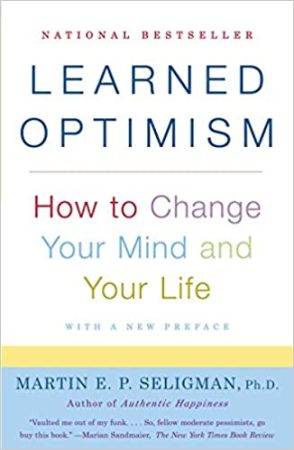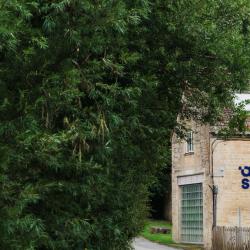Having an optimistic mindset is linked to all sorts of benefits including health, wellbeing, professional achievements, and better personal relationships. Twin studies suggest that an optimistic mindset is 30-40% linked to our genes, with 60-70% due to nurture. Being optimistic is a choice which we can practise to become a habit.
But how do we keep optimistic, on the tougher days — particularly if we are surrounded by people who are caught up in the doom and gloom? Even for the Tiggers amongst us, the Eeyore’s at some point can chip away at how hopeful we feel about now and the future.
In a recent podcast episode of Secrets from a Coach, Laura Thomson-Staveley and I explored the purpose of optimism and generational trends in how to keep positive in the face of adversity. When things are challenging it’s important to ‘smile and wave’ — which is all about looking on the bright side of life.
Keeping yourself optimistic feels tougher for everyone these days
In a recent workshop we hosted working with people in their 20s and 30s, where we measured people’s levels of optimism as part of a programme, we were amazed to find incredibly low optimism levels for people at the beginning of their careers. They were just starting out with good jobs, good salaries but their optimism was low. When we questioned them about it, they couldn’t see a bright future ahead for themselves at all. They felt that they were facing a barrage of stuff that they were worried about which was surprising in a group so young.
It’s all about your mind, how you see things, and how you view the world. Whether you view it through an optimistic lens or pessimistic lens. So how do you refocus on an optimistic mindset?
Optimism is a mental attitude characterised by the hope and confidence in successes and a positive future. On the whole optimists view any hardships as learning opportunities, which are temporary setbacks that aren’t going to last forever, and tomorrow will probably be better. It’s the negative Eeyore mindset vs bouncy and upbeat Tigger mindset from Winne-the-Pooh.
We have a freedom of choice whether to be optimistic or not — that can’t be taken away from you. So, it’s about having the ability to say it might be bad at the moment and that things feel hard but refocusing to think about your intent. Instead of staying in the same negative loop, you can choose to see it differently and consider the opportunities a situation is presenting to you. What are the lessons you can take away? You may need to dig a bit deeper, be kind to yourself and recognise the things that you can do rather than the things that you can’t do. Having the belief to make the impossible possible. You must believe in where you’re heading, have energy about what the future could look like. You must believe that you can succeed in the face of life’s challenges, because you can if you want to. It’s your choice to make the change.
Having an optimistic mindset gives you the confidence that you can do something positive and proactive because you’ve got the skills. It also means that you’re seeing it as an opportunity to learn. So, your mindset is that you can do this because you’ve done it before and survived, possibly thrived.
There are a few ways to protect and preserve your own optimistic mindset
You need to ‘notice, choose and act’. Notice what’s going on and remind yourself of what the opposite of a negative point of view could be and flip it. If there’s lots of doom and gloom, try to develop a STAR story (situation, task, actions you took and the result) which is a great way to capture and remind yourself about positive successes. This can also have a positive impact on the people around you too.
You know that you have the ability to make good things happen and that there are good things in life, because of your past experiences. It helps to affirm your belief in yourself. I always tell people to keep a ‘Smile File’ which is a place to save all the great feedback you get sent. It’s a way to hold onto it so when you have an Eeyore day you have a reminder of what you can do. It’s important to be more mindful of this and ‘catch’ our moods before they smack us in the face, and we end up eating 12 packets of crisps! Connect with your feelings and question yourself. Check how your body feels, what language are you using and who are you surrounding yourself with? These can all have a big impact on how we are feeling.
There’s a strong link between having an optimistic mindset and wellbeing
It’s important to have good self-image, high self-worth and feel you deserve good things. This helps you to always look for the opportunities and good in everything. If it feels tough at the moment, take a breath, sit back and think about the good in your situation. There might be a little glimmer of hope that you hadn’t previously spotted — which you can light up and use to give you a positive push towards optimism.
In his book, Learned Optimism: How to Change Your Mind and Your Life, Martin Seligman shares his three Ps of optimism. These include not taking things overly Personally, keeping setbacks compartmentalised rather than overly Pervasive and remembering that things will pass in time rather than Permanence. This is a useful tool to help others as well as yourself.
Three questions I always find useful to ask yourself, a friend or colleague include:
- What has gone well this week?
- What could be something that can help move things forward?
- If there’s one thing that you could learn from this experience, what might that be?
These questions always help to keep us moving forwards and keep your optimism strong.
Don’t forget to take time for you — and the more you work on your optimism the brighter your life will become. Why not try it today?
































